-
Our picks
-

Email issue
Stefan Johansson posted an article in 99nicu News,
We have an issue with emails going out from the web site dashboard, due to a faulty plugin in the software. Fix is underway. Most importantly, the web site as such is working as usual!-
- 0 replies
-
-

Enfamil & NEC lawsuit
chandas posted a topic in nutrition,
Enfamil & NEC lawsuit - how could this impact families and feeding of preterm infants?
Join the discussion.-
-
- 2 replies
-
-

EBNEO COMMENTARY: REDUCING EXTUBATION FAILURE IN EXTREME PRETERM INFANTS – HIGHER VS STANDARD NCPAP
EBNEO posted a topic in EBNEO Reviews,
New EBNEO commentary - reducing extubation failure in extremely preterm infants (ELBW) with higher or standard nCPAP-
- 0 replies
-
-

Budesonide Nebs No, Yes (if so When)?
ali posted a topic in pulmonary disorders,
Budesonide nebulisation to preterm infants: No or Yes (if so When)?
-
-
- 8 replies
-
-

Short bowel syndrome and challenges ahead?
Amirmasoud Borghei posted a topic in nursing the neonate,
Short bowel syndrome and challenges ahead?
Please share your experience.-
-
- 3 replies
-
-

SMA Gold Prem HMF - Guideline
ali posted a topic in nursing the neonate,
Do you have a guideline on the making up of SMA fortifier?
If yes, please share!-
- 1 reply
-
-
-
Latest Topics
-
EBNEO COMMENTARY: MANAGEMENT AND OUTCOMES OF PERIVIABLE NEONATES BORN AT 22 WEEKS OF GESTATION: A SINGLE-CENTER EXPERIENCE IN JAPAN
By EBNEO, in EBNEO Reviews
- 1 reply
- 512 views
-
Neonatal Lung and Airway Ultrasound Course -Face to Face UK
By spartacus007, in Congresses and courses
- pocus
- lung ultrasound
- (and 1 more)
- 0 replies
- 41 views
-
Which milk is better in extremely premature babies when there is not human or mothermilk?
By Theodoros Gkouvas, in nutrition
- 3 replies
- 1,039 views
-
- 1 reply
- 138 views
-
- 16 replies
- 4,053 views
-
Join our next Concord Talk: Creating physical and emotional closeness during PBCC
By Emily Creemers, in Concord Neonatal
- 0 replies
- 64 views
-
Neonatal Lung Ultrasound-Consolidation versus Atelectasis in Neonates
By spartacus007, in Congresses and courses
- 2 replies
- 1,221 views
-
- 2 replies
- 1,402 views
-
EBNEO COMMENTARY: REDUCING EXTUBATION FAILURE IN EXTREME PRETERM INFANTS – HIGHER VS STANDARD NCPAP
By EBNEO, in EBNEO Reviews
- 0 replies
- 1,045 views
-
- 2 replies
- 1,075 views
-
-
Latest News
-
- 0 comments
- 28 views
-

- Added by Stefan Johansson
-
- 0 comments
- 706 views
-

- Added by Stefan Johansson
-
-
Latest Blog Entries
-
0 commentsThe 99nicu.org web site is built on the Invision Power Board software.
In the next version (v5) there will be a major overhaul of the user interface, allowing for an even better way of presenting and browsing content here.
You can get a sneak preview in the video below (a bit techy, but still )
-
1 commentI don’t need to expand on how Internet and social media have shifted the paradigm for professional discussion. You know this!
Painful it is, but I wanted to share that I have decided to close my Twitter/X account. I will miss you tweeps. But... see you soon elsewhere!
I started to build a network on Twitter in 2009, exploring this new channel for communication about research and medicine. Twitter was different then, compared to what X has become. In the earlier years, Twitter impersonated open, high-level and cross-professional discussions. Despite different opinions shared, the feed was a friendly gathering. If you posted something seemingly controversial (or something not at all controversial about Covid-19, liberal democracy values, suffering among immigrants, or aggressive warfare), people commented in a respectful manner. You did not get a load of automated bot replies (from "verified accounts" with like ~10 followers) telling you were a moron and should XYZ!
Importantly, #NeoTwitter, #NeoEBM and #foamneo all grew into valuable resources. I am so grateful for connecting with you and other wonderful people there. It has indeed enriched my professional life, and often made me think twice.
With X and the new leadership by Musk et al (btw, is there even an “al”?), I have simply taken the consequence of not compromising with my values. That’s why I will delete my X account soon, after saying good bye to comrades there. The principal reason is that I don’t want to contribute to a communication platform where hate speech, conspiracy theories, and fake news is given this much space. The world of today is complicated enough as it is.
Although my own feed is still pretty OK, I feel that sharing a communication platform with the “dark side” (and don’t underestimate the force of it), implies that my presence there, as a person and as a professional, legitimate the bad stuff. In fact, this might even be an intentional business strategy of the X management team.
There is certainly some “alternative cost” to rebuild a neonatal network on a new platform. But I am fine with that. For myself, this is a step worth taking to get rid off the feeling that I am also, to some symbolic extent, feeding the trolls on X.
For the time being, I will stick to LinkedIn, while hoping to rebuild a network feed on our NICUVERSE Mastodon-server and/or on Bluesky. So, might see you there
And of course, maybe the future holds a renaissance for 99nicu.org with its older-school web site-based discussions.
Please note that this is a personal decision and about my own Tw/X account. However, within the 99nicu Team, we are also discussing an X-it strategy, but we need to make sure we have the organization's best interest in mind. And, with our upcoming conference, we may choose to keep the 99nicu account up and running to for sharing the word about our conference plans. After all, #NeoTwitter is still a great place for reaching out.
Thanks to the Verge for making the graphics illustrating this post
-
0 commentsI would like to introduce to you doctor Angela Gregoraci, a Spanish neonatologist, who has just completed a two-month observership in our NICU in Turku, Finland. Our unit here in Turku, is a tertiary center, with single-family rooms and- even more importantly- with families having the possibility to stay with and care for their sick or premature infant throughout the day and night. The objective of this short training was to learn how to facilitate the implementation of family-centered care in dr Gregoraci's unit in Spain. After the internship, she decided to describe her experiences in an essay and I'm grateful she gave me the permission to publish it also here. I hope that this well-thought and beautifully written text will warm your heart on this cold, fall evening. Enjoy the read! KP
FROM TARREGA'S MEMORIES OF THE ALHAMBRA TO SIBELIUS' TUONELA SWAN: EXPERIENCE OF A SPANISH NEONATOLOGIST IN TURKU
I remember very well the first time I heard about developmental and family-centred care, back in 2010, when I was just a neonatologist in training, looking in awe at the pictures of the Uppsala Unit. I knew then that this was the path I wanted to follow, although at that time it seemed utopian... Years later my boss and mentor, Dr. Perapoch, told me a similar anecdote when in 2003 his colleagues visited a Danish neonatal unit: that visit opened their minds. They were there to learn about CPAP and what they brought back with them was a discovery that had an equal or greater impact on the health of the infants and their families: the kangaroo care and the supportive environment. That was more than a decade ago and I am still walking in that direction, convinced, despite the obstacles, that there is no other possible horizon in modern Neonatology.
In 2018, European expert group recommendations defined eight principles for newborn-centred and family-integrated care1 consistent with the European Research Network on Early Developmental Care (European Science Foundation)2. In Spain, there are two Newborn Individualized Developmental Care and Assessment Program (NIDCAP) training centres and seven neonatal units that include NIDCAP-certified professionals. Moreover, several units have started to work on different training programmes for developmental and family-centred care3. A survey examining the eight principles previously published was sent to all Spanish level-III public neonatal units in 2018. Results indicated that none of the Spanish NICUs surveyed had completely implemented the eight principles3. Principles related to the family (parental presence and psychological support) were implemented significantly more often in units with a greater number of very low birth weight (VLBW) infants. Free 24/7 parental access with no limitations is essential for a real infant and family-centred developmental care implementation. In Spain, free parental access was present in 11% of Spanish NICUs in 20064, which increased to 82% in 20125 and 95.4% in 20183. However, although most of the units defined themselves as having an open-access visitation policy for parents, many of them imposed restrictions so that access was not in fact unlimited6,7. Indeed, even if the number of neonatal units with 24/7 access has increased in the last decade, it is not enough. We should still make an effort to remove barriers and promote facilitators to encourage parents' presence and participation during medical procedures or ward rounds. Another unresolved key point, according to the survey findings, was the scarce availability of health care professionals to provide psychological support to parents during and after their infant's admission. Skin-to-skin contact was fulfilled by almost 70% of the NICUs3.
I came to Turku determined to find a way to overcome these barriers, not knowing that what I would find would be the closest thing to l'isola che non c'é, by the Italian singer E.Bennato. It was as if I had returned to the future and found myself looking through the eyehole of the door at what I would like to be my NICU ten years from now at the latest.
I was convinced that in order to achieve real and sustainable change in care, the intervention should aim to change the attitudes and beliefs of each professional who work with newborns and their families rather than aiming to change single care practices of the unit. Empowering professionals to empower families, that was the challenge. And here in Turku, they had achieved it, it was not a utopia!
Sometimes it is enough to change the direction of your gaze to see more clearly, said the French writer Saint-Exupéry. It was as easy as looking for the pole star, guided by the Chariot, as Ulysses tried to do on his return journey to Ithaca, or where the moss grows, or where the compass tells you... north. During these two months in the NICU of the Turku University Hospital, I have had the opportunity to see with my own eyes the revolutionary power of critical training based fundamentally on practice and reflection to bring about change. Nine years after the group led by Sari Ahlqvist-Björkroth, Zack Boukydis, Anna Axelin, and Liisa Lehtonen successfully implemented and extended their training Close Collaboration with Parents Programme, the "revolutionary" idea that parents are the main facilitators of the proper development of their baby, whether healthy or sick or born prematurely, had become indisputable and inherent in the mindset of both professionals and families in this Finnish unit. I spoke with nurses, with paediatricians, with families, I observed the babies admitted there, and all of them transmitted me unequivocally the same mantra: the participation of families is indispensable in neonatal care, a critical stage of life for both newborns and parents. How to achieve this is perhaps the next biggest challenge and it is clear that Finland is one of the countries with the most supportive and enviable social policies to do so, but it is not the only thing that is needed. Teamwork, good communication, active listening, and respect for diversity and otherness among professionals and between professionals and families are essential.
One of the biggest lessons I learned from humanitarian work is that the necessary ingredients for a successful action are: humility, respect, and collaborative work. Without asking beneficiaries about their real needs and capacities, without empowering the development of their skills and making them active subjects of intervention and care, aid will never be sustainable over time. As the indigenous activist and artist Lila Watson said: "If you have come here to help me, you are wasting your time. But if you come here because your liberation is bound up with mine, then let us work together".
Moving from a care model centred on the professional who relates to the patient in a vertical way, seeing and treating them as vulnerable and lacking in decision-making capacity or autonomy, to a model centred on the patient (and family in the case of neonatal care) endowed with capacities and skills, who relates to the professional in a horizontal and collaborative way, is possible and imperative for all of us to enjoy greater physical and mental health. And Turku is a clear example that it is possible.
In my personal journey to Ithaca I have been accompanied by extraordinary people: the nurses and Sanna and Helena, with whom I had the opportunity to get to know their training programme in depth, carrying out the individual practice sessions as bedside practice, and sharing their experience as trainer-mentors from the difficult beginnings in their own unit to their current challenge to continue extending to more Finnish and European units; the psychologist Sari, one of the promoters of the programme, with whom I shared knowledge and exercised the incredible and exciting art of critical reflection in a relaxed and, at the same time, professional atmosphere; the families of N. , S., J., O., who allowed me to enter and stir emotions, memories and thoughts at such a critical and difficult time in their lives, and who confirmed to me that parents also have a voice that wants to be heard, because we need them to take better care of their babies and they need us to be able to feel and act as parents. And finally my two bosses, the one over there (Josep Perapoch) and the one over here (Liisa Lehtonen) who gave me the chance to enjoy this experience in my own way and whom I deeply admire for their tenacity and love for Neonatology in general and for families and their babies in particular.
All these people have facilitated (and I am sure that they will continue to do so with their example and support) my particular process of gestation as a neonatologist, woman, and mother, as well as that of all neonatologists, fathers, and mothers of the present and future, because utopia is not far away, as Galeano said, but is ever closer.
Kiitos
"In dark times we are helped by those who have been able to walk in the night, showing us that the obstacle does not prevent history. Only those who are capable of embodying utopia will be fit for the decisive combat, that of recovering what humanity we have lost" (Ernesto Sabato)
Angela Gregoraci, Neonatologist
Hospital Dr. Josep Trueta, Girona, Spain
References:
1-Roué J-M, Khun P, Lopez-Maestro M,et al. Eight principles for patient-centred and family-centred care for newborns in the neonatal intensive care unit. Arch Dis Child Fetal Neonatal Ed. 2017;102(4):F364-F368
2-Research on Early Developmental Care for Extremely Premature Babies in Neonatal Intensive Care (EDC). Secondary research on early care for extremely premature babies in neonatal intensive care units (EDC). http://www.esf.org/index.php?xml:id=1514. Accessed October 10,2019
3- López-Maestro M, De la Cruz J, Perapoch López J, et al. Eight principles for newborn care in neonatal units: Findings from a national survey. Acta Paediatr.2020;109:1361-1368
4- Perapoch López J, pallás Alonso CR, Linde Sillo MA, et al. Developmental centred care. Evaluation of spanish neonatal units. An Pediatr (Barc).2006;64:132-139
5- López-Maestro M, Melgar Bonis A, de la Cruz-Bertolo J, Perapoch López J, Mosqueda Peña R, Pallás Alonso C. Developmental centred care. Situation in Spanish neonatal units. An Pediatr (Barc).2014;81:232-240
6- Raiskila S, Axelin A, Toome L, et al. Parents' presence and parent-infant closeness in 11 neonatal intensive care units in six European countries vary between and within the countries. Acta Paediatr.2017;106:878-888
7- Greisen G, Mirante N, Haumont D, et al. Parents, siblings and grandparents in the neonatal intensive care unit. A survey of policies in eight European countries. Acta Paediatr.2009;98:1744-1750
-
1 commentQuick Facts:
The sudden and unexpected death of a child younger than a year is called sudden infant death syndrome.
Such infants usually die in their sleep.
Infants between 2 to 4 months are more prone to SIDS.
The doctor will declare the death of the infant as SIDS if no other cause is identified.
The risk of SIDS can be reduced by placing an infant to sleep on his or her back.
What Is SIDS (Sudden Infant Death Syndrome)?
Sudden infant death syndrome, otherwise called SIDS, is the sudden and unexplained death of an otherwise healthy infant, generally during sleep. As most infants die in the crib during their sleep, it is also called crib death or cot death. It can be difficult to find the cause for SIDS. It is thought to be due to defects in the part of the infant’s brain that controls breathing and wakes up the body from sleep.
Doctors and researchers have identified some factors that might be increasing the risk of SIDS, and there are various measures that parents can try to protect their children from SIDS. The most important advice from doctors is to put the baby to sleep on his or her back.
SIDS is rare, but still the most common cause of death of infants under a year old in the US. Babies between the ages of 2 and 4 months are most commonly affected.
Does SIDS Result in Any Symptoms?
SIDS does not result in any symptoms. Babies who are sleeping die suddenly.
What Causes SIDS?
Researchers are yet to conclude the exact cause of SIDS. They believe a combination of the following factors might be responsible:
1) Physical Factors:
Brain Development - Most of these babies are born with some defects in the brain, which makes them more prone to die suddenly. The part of the brain that is responsible for breathing and sleep arousal do not mature enough.
Premature Birth - In babies born prematurely, the chances of the brain not developing completely increases. Such babies do not have proper control over breathing and heart rate.
Respiratory Infection - Breathing problems due to a cold or any other respiratory infection can lead to SIDS.
2) Environmental Factors:
Sleeping Position - Babies that are put to sleep on their stomach or side might find it more difficult to breathe.
Bed Sharing - Babies sleeping with their parents in their bed, or any other mattress that is not specially made for them increases the chances of injury, asphyxia, and strangulation.
Being too Warm - The risk increases if the baby is too warm while sleeping.
Blocked Airway - If a baby rolls over while sleeping on a soft surface like a comforter or soft mattress, it can block his or her airway.
Other Causes - Using an unsafe or old crib, using a very soft mattress, filling the crib with soft toys while the baby is sleeping, not using a pacifier, and not breastfeeding.
What Are the Risk Factors for SIDS?
Apart from the physical and environmental factors, the following factors also increase the risk of SIDS:
Boy babies.
Infants between 2 to 4 months of life. More than 80 % of babies that die of SIDS are under 6 months of age.
Having siblings or cousins who died due to SIDS.
Babies exposed to secondhand smoke.
Babies with low birth weight.
Sleep apnea (breathing stops in periods while sleeping).
Mothers can also increase the risk of their baby dying of SIDS. Mothers who:
Are younger than 20 years.
Smoke cigarettes.
Use drugs.
Drink alcohol.
Do not have proper prenatal care.
Try to avoid as many of these risks as possible.
How Does a Doctor Diagnose SIDS?
There is no specific test to determine that the infant died due to SIDS. The doctor rules out all possible causes of death before declaring the cause to be SIDS. The tests and investigations done by the doctor include:
Examining the infant’s body after death.
Examining the place where death occurred.
Evaluating the symptoms that the baby had before death.
Is There Any Treatment for SIDS?
Sadly, there is no treatment for SIDS. As there are no symptoms or signs that can alert the parents before the sudden death, nothing can be done. But, there are various ways to reduce the risk.
What Can Be Done to Reduce the Risk of SIDS?
The following tips can possibly help reduce the risk of SIDS:
Put Babies to Sleep on Their Back - Until they are 1 year old, babies should be put on their back for sleep. While they are awake, you can put them on their side or tummy, as it will make the baby grow stronger. But always keep a close eye on them.
Prenatal Care - Get early and regular prenatal care. Pregnant women should follow a healthy diet and avoid drinking alcohol and smoking. This can help reduce the chances of premature birth and, in turn, reduce SIDS.
Use a Firm Mattress - Always make your baby sleep on a firm bed with a tightly fitted sheet. Avoid using fluffy comforters. Never put soft toys or pillows in the crib.
Breastfeeding - Breastfeed your baby at least for the first 6 months. Until suggested by your doctor, do not give your baby water, sugar, or formula milk.
Pacifier - Give your baby a pacifier while sleeping.
Avoid Overheating - The room temperature should not be too warm, and avoid over covering or overdressing your baby.
Do Not Share a Bed - Infants should sleep in a separate crib, that is placed close to the parent’s bed. Never share a bed, especially if you take medicines or alcohol.
Do Not Smoke Around Your Baby - Do not smoke when you are pregnant and let any person smoke near your baby. Secondhand smoke can be bad for the baby.
Vaccination - Regular checkups and vaccinations to prevent infections can reduce the risk of SIDS.
Avoid using baby monitors and other devices that claim to reduce the risk of SIDS.
Coping With the Loss of Your Baby:
It is essential to get emotional support after losing a baby to SIDS. Most mothers feel guilty and grief. Talking to other parents who have lost their children to SIDS also helps. Communicate with your friends, family, or a counselor. Losing a child strains a relationship, so try to be open with your partner. Give yourself time to grieve.
-
-
Upcoming Events
-
16 April 2024
0Dear colleague,
We are a group of neonatologists interested in neonatal pharmacology. We have launched worldwide this survey to study neonatal analgesia & sedation management.
We would really appreciate your expertise and input!
We´d suggest you to reflect the current management of analgesia and sedation in your NICU.
The name of the Hospital, that we offer to add at the end of the survey, is requested only to avoid duplicated responses and will be deleted before processing the data. No single person or institution will receive information regarding individual answers to the survey.
The survey will take 10 minutes or less to complete.
In case you have any questions or want to comment on something, you can do so via email carribass@unav.es .
We really appreciate your participation in advance!
https://es.surveymonkey.com/r/W92CYM7
cover letter neonatologist analgesia survey.pdf
-
18 April 2024 Until 19 April 2024
0Check out the Nordic Perinatal Care Spring Meeting in 18-19 April 2024!
Find program and registration info on the link below:
-
18 April 2024 06:00 AM Until 19 April 2024 12:30 PM
0Dear Esteemed Perinatal Care Professionals,
The Finnish and Swedish Perinatal Societies are delighted to invite you to the Nordic Perinatal Care Spring Meeting 2024 in Helsinki. We have curated a program that promises to engage obstetricians/gynecologists, neonatologists/pediatricians, midwives, and neonatal nurses. We extend our warm welcome to participants from all the Nordic and Baltic countries.
Sincerely,
Kalle Korhonen
Chair, Organizing Committee
kalle.korhonen@tyks.fi
Registration: https://www.perinatologinenseura.fi/koulutukset/kevatkokous-2024-yhteiskokous-ruots-2/
Nordic Perinatal Care Spring Meeting 2024_invitation and program.pdf
-
03 May 2024 12:00 PM
0Perinatal Care of the Preterm Baby-Epidemiology and Ethics
This is an online module being organised by the MPROvE Academy starting from the 12th of February till the end of April 2021. The content covered includes limits of viability, prenatal counselling, communication, prognostication, decision making, and a lot more as outlined below. The course has been broken up into content that can be imbibed weekly with a webinar covering that topic. The course has online content, and videos for review by the participants. Participants can access this from anywhere in the world. For more details a video of the course is attached.
For registration please contact Dr Alok Sharma Consultant Neonatologist on draloksharma74@gmail.com
-
18 May 2024 Until 19 May 2024
0The MPROvE neonatal simulation instructor course was established in UK in the year 2012. The concept MPROvE relates to multidisciplinary education of any kind being used to improve the quality of care and/or patient outcomes. The intention is to help institutions, hospitals and teams develop faculty skilled in using simulation and technology enhanced learning as an educational tool for quality improvement, delivery of high-quality neonatal care and to improve neonatal outcomes.
The MPROvE team delivers the simulation instructor course in 2 modules.
Module 1 - The module includes a two-day face to face interactive workshop. It comprises of series of interactive lectures, demonstrations and opportunity to practice the skills needed to become a simulation facilitator.
Module – 2: This module is a 12-week mentored online sessions to further refine the skills. This also helps to obtain certification as simulation faculty.
We assure you that you will be become a trained facilitator with required competencies to conduct/ train/ teach at you institutes with confidence. We strongly recommend the programme to all the teachers/trainers/faculty in healthcare to further enhance your overall training skills mainly focusing on translational learning through simulation.
mprove simulation instructor course.pdf
-
IPOKRaTES under the Acropolis: Hot topics in Neonatology: Current approaches and future perspectives22 May 2024 Until 25 May 2024
0Objectives
IPOKRaTES seminars provide high quality postgraduate education, which enables professionals to keep abreast of the most recent developments and offers participants the opportunity to discuss clinical problems or scientific issues personally with international experts.
“IPOKRaTES under the Acropolis” will focus on specific problems and management of the cardiorespiratory system of the neonate, nutritional needs, growth and infections, particularly of the preterm infant, issues concerning neonatal neurology and topics of general interest in Perinatology.
For further information and registration, please visit www.ipokrates.info
-
29 May 2024 12:00 PM Until 31 May 2024 08:00 PM
1Join us for our 4th International Neonatal POCUS Workshop in Sweden!
Learn all about neonatal hemodynamics and basics and advanced skills in NPE/TNE, Lung-ultrasound and vascular access POCUS.
More info on www.neonataltraining.org
Registration is now open and early bird until February 15th!
-
-
Links
-
Latest Pharmacopedia Posts
-
Gallery Feed





.jpg.59ab5a1ef4cde9744d175a335a798aac.thumb.jpg.f1c20d41d563c7b7a5dad4d4cfb7848e.jpg)
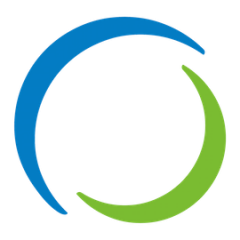

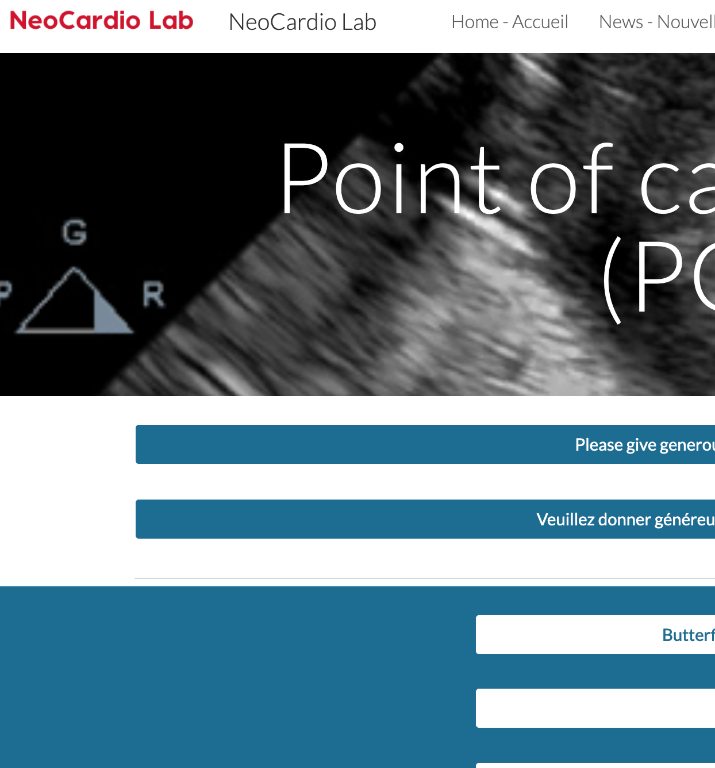
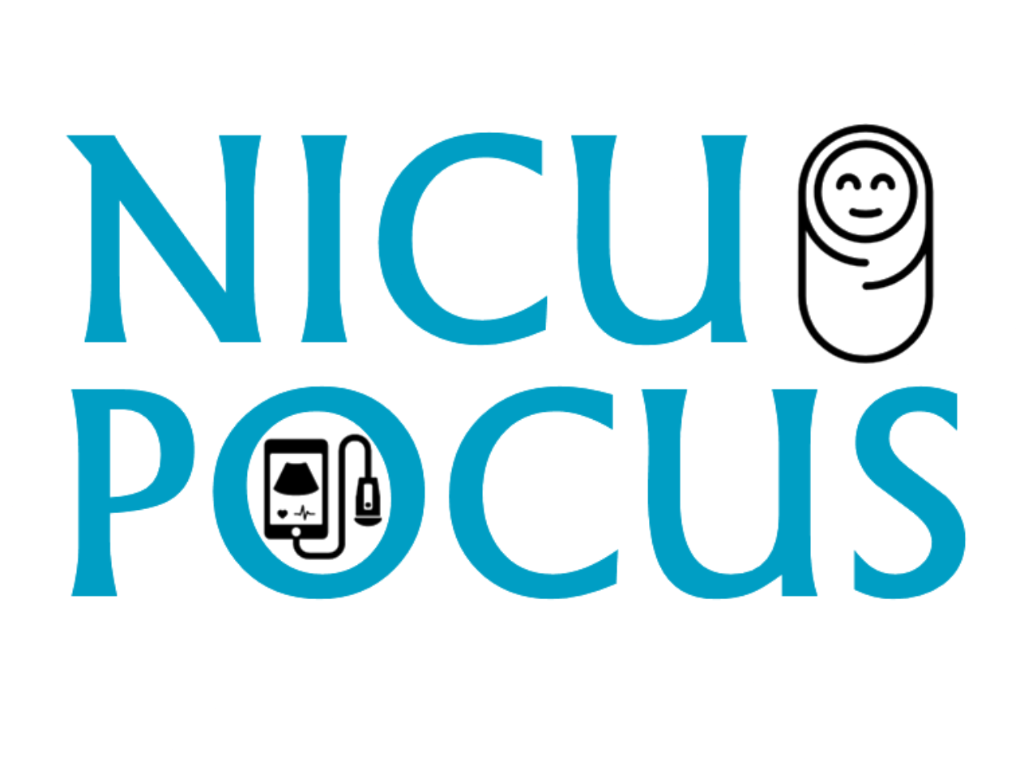

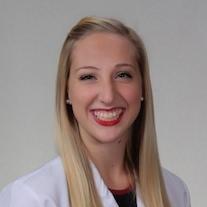
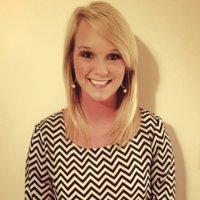





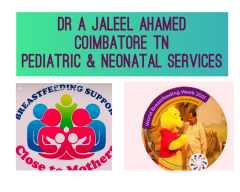

.png.450f1ea431a880623482aa8250c65a44.png)
